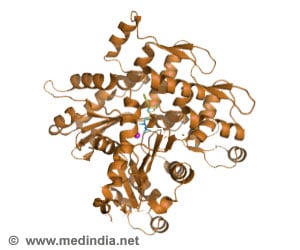
Lead researcher Rory Fisher from the University of Iowa in the US said, "We propose that inhibiting this RGS6 protein could represent a new approach to counteract alcohol dependence and at the same time protect against the cell-killing actions of alcohol in the heart and liver."
There are only a few drugs that purport to treat alcohol dependence and none that treat the damaging effects alcohol has on various organs. The study recommends that targeting the actions of RGS6 might accomplish both aims.
The scientists used mice lacking RGS6 to probe the protein's roles in both alcohol craving and organ damage.
They found that when given free access to alcohol, mice without the RGS6 protein consumed less alcohol than wild-type mice with the concerned protein. The study appeared online in the journal Early Edition of the Proceedings of the National Academy of Sciences (PNAS).
Advertisement












